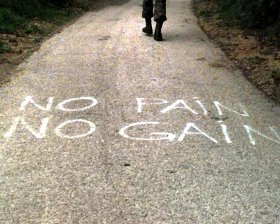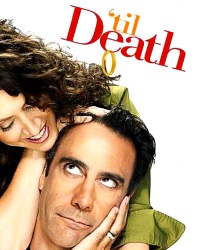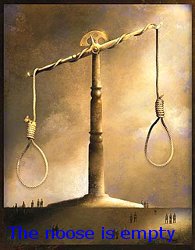
Mayor’s Journal, 5th December, 2010:
Of Love and Picnics
I love picnics. I try to make them happen whenever I can. Not that it’s always a complicated affair, sometimes it’s nothing more than cutting up some chunks of bread and cheese with tomato, sitting under a tree somewhere green and friendly. But I just love the idea of eating outside in some carefree way, getting our fingers all smothered in juice or sauce or mustard. Who can say why?
Sometimes the picnics I organized for Pat and me were so simple, she would come home from work with an hour for lunch and I would have prepared something to eat in some plastic-ware. Then we’d go sit by the village ‘lavoir’, which is the old washing shed where the women would come in days gone by to scrub and rinse their laundry (as recently as ten years ago I still saw some women doing this). The lavoir is located on the little stream that runs through the village and we’d sit by the stream as it entered the washing shed in little cascades, skipping from one level to the other as the water made its way down from one large stone-lined pool to the next, and then out back into the stream.
At the end of our meal I would pull out from a backpack the little camping stove and an Italian coffee maker. Within minutes I had that thing spluttering away, filling the aluminium top part with a thick dark brew of coffee. Even if it were cool, we would enjoy that coffee steaming in its porcelain cup (only porcelain will do), with a lump of rough raw sugar to take edge off the bitterness.
Ahhh…
Hey, what? What’s this have to do with love? Nothing. No, everything. It has as much to do with love as anything else, of course. But for me, picnics just seem to evoke that sense of freedom, lightness and spontaneity that we associate with love. And Love has been on my mind lately.
As you know, the last couple of months or so I’ve been struggling a bit to find a durable sense of inner peace. Up till September, I could convince myself all was okay and on track in my world. Then it became harder to still maintain that belief, given the ultimatum I had given myself: “By September you will have found new work or will have decided on your next career direction.” Blahdy, blahdy… You’ve all heard that one now. And as you all know, ultimatums can never possibly lead to peace. They are purpose-built to ensure guilt raises its sword and swiftly separates the worthy from the unworthy. You know which side of the fence I thought I landed on!
So, where’s Love gone? Where’s the picnic?
Strangely enough, I thought I was doing the Course well, though I was pretty sure that fear and self-condemnation weren’t normally part of the deal. It’s just that the ego can convince itself sometimes that it is supremely wise and all-knowing. In my case, I thought that doing the Course meant focusing on the dark side of the ego, looking for the self-judgment and fear etc. What I didn’t appreciate was that the ego can actually surreptiously lead one through Ken’s process, convincing one that he is just doing the hard work of forgiveness. I should have been suspicious when I heard an inner voice saying, “This is hard work!” But I wasn’t. Discomfort can feel so natural that I didn’t even know it was there, and building.

I knew the answer was to take the entire process more and more lightly, but in the classic logic of the ego, this felt like I wasn’t doing it properly! What was the problem? Again, I was making the ego real, making condemnation real and significant. But anytime I tried to look at the entire scenario more lightly, I felt I was betraying the process, I was cheating. As if this was supposed to be difficult: if I wasn’t feeling pain – so went this logic – then I should seriously doubt I was doing the process correctly. I had so drummed into my mind that we must never underestimate the viciousness of the ego, and that we should always be aware of the hatefulness in all our thoughts, that I was temporarily incapable of finding my way back to a sense of equanimity and peaceful observation. The good news is that that’s all over now. (yay!)
I learned a big lesson.
Ken has taught us that we must be aware of our tendency to underestimate the ego, to believe that we are further along than we think. He asks us to be very observant of our thoughts in order to discover the true level of murderous and exclusion lurking there. This is the only way to make real progress with this Course. Then, as we know, we must take this to the presence of Love and kindness where it will dissolve.
I would make another qualifying statement to supplement Ken’s: “Never overestimate the ego – the ego is not more powerful than Love.” Our goal is Love, the remembrance of that remarkable state of warmth, clarity and all-knowing security that is incapable of fear or doubt. I thought that doing the Course properly meant not looking toward Love, but toward the ego. To a certain extent this is absolutely true. But only to a certain extent – not to the exclusion of Love.
I believe that those of us at the Village are pretty well devoted students of Ken’s. In that case, we all know that the focus of our work is uncovering our unloving, separating thoughts, and bringing them to the Love, to Jesus, within our minds. The method we use is not working at finding the Love within us, but finding the obstacles to Love within us. This we know pretty well. On the other hand, I would like to make sure that we remind ourselves from time to time that Love also has its symbols, that there is a real and valid reason to remind ourselves that Love is our true and only goal.
And so I propose that we begin to weave into our work at the Village some thoughts and meditations that remind us of this magical, wonderful goal…
“You are as God created you. The sounds of this world are still, the sights of this world disappear, and all the thoughts that this world ever held are wiped away forever by this one idea…
True light is strength, and strength is sinlessness. If you remain as god created you, you must be strong and light must be in you. He Who ensured your sinlessness must be the guarantee of strength and light as well. You are as God created you. Darkness cannot obscure the glory of God’s Son. You stand in light, strong in the sinlessness in which you were created, and in which you will remain throughout eternity…” (Lesson 94)

For a long time I had a reaction to this lesson that bordered on an allergy. The same with lesson 93 (Light and joy and peace abide in me). I skipped over them and focused on all the lessons that were more incisive, looking at the ego, etc. Perhaps this is an occupational hazard of those working with Ken (he is often reminding us to not skip the difficult work, thinking we could gain Heaven if we simply repeated these beautiful lessons often enough). This is a mistake we can fall into naturally. It’s certainly not because of anything to do with him, of course; it’s because it’s so easy for the ego to come along for the ACIM ride. It’s so easy to think that we’re doing what Ken wants because we’re feeling uncomfortable (in my experience). And then the ego logically might conclude that it’s about feeling uncomfortable all the time. In the ego’s language, “no pain, no gain’ becomes “because there’s pain, there’s gain.” As if that could possibly be the path Jesus wants us to walk.
I’m now convinced there’s a gentler way of coming to Jesus, and I intend to work this principle into our little Village from now on. There is ‘gain’ to be had, and it’s not always about ‘pain’. There is a peacefulness and sense of release from our damaging self-concepts that we can reach. There are some pretty magnificent rewards to be won from doing this work. Let’s make sure we don’t forget those, too. The royal picnic is there; it asks only for us to come with “wholly empty hands unto our God.”

Mayor’s Journal, 8th December, 2010:
To all the guilty caretakers out there – You cannot be a good Jesus substitute for another person!
Following a recent event in my life with an extended family member and a conversation with a Villager going through something similar, this piece came to me.
Who has not had the experience of feeling just terrible when faced with another person’s anger, sadness or pain? Maybe you even know that he or she is laying a guilt trip on you, but it doesn’t help. You free-fall into the trap, and that crushing, self-abasing sentiment of having done wrong and hurting another, or just not doing enough, fills you with a sense of ‘icy hopelessness’. What’s actually going on, why is it so hard to pull ourselves out and back into the calm fields of equanimity and wisdom?
Our mind whispers, “By my suffering this guilt and torment, this person’s suffering is reduced. So if only I could suffer enough, this person would somehow feel better. At least, if I don’t suffer because of their anger, pain and upset, they would take that really badly.” Where’s this craziness coming from? Why do we sense that this person would somehow feel better if we felt bad?
It helps if first we remember that the reason that people feel pain or suffering of any nature is because they are failing to turn within and seek the Love they need there in their own mind, in the folds of Jesus’ cloak. They sense crushing guilt in their minds, but their own decision for suffering seems too intolerable to face. They cannot bear to confront their choice to turn away from the support and love of Jesus within their own mind; consequently they believe they can magically rid themselves of this responsibility and weightiness if they place it on you. “You can do something about my pain,” so they whisper, “but because you are so horrible you’re choosing not to do it. It’s your choice for me to be in pain, not mine. You have the magical solution – just do what I want you to do. It’s so simple! And yet you refuse. How heartless!”
As we all know, that finger pointing at us accusingly seems to leap out at us as if from some metaphysical 3D horror film: “God has found me! Now I’ve had it. Repent, repent, feel guilty. I’ll torment myself, and all shall see that I truly regret my terrible acts. Oh, this terrible power of mine that I have abused yet again. Woe, woe.”
When you accept this responsibility, you claim that, indeed, you have this special magical ability to lessen this person’s suffering. You give yourself this remarkable ability to remove this person’s pain just by some act or another. Yes, you believe you are Jesus (or God) and have remarkable abilities of healing and succour. But because it is ‘one or the other’, because our wellness in this world is a question of providing the right external conditions (and not as a result of a choice to access inner peace), you must also defend the demands on your time and resources, which are limited. This person’s well-being must be sacrificed, so the logic goes, so that yours or your loved one’s might be maintained. We can easily see here how this plays into our individuality’s sense of identity and specialness. This entire drama is maintaining the myth that our life is within this outer, imperfect world as separated beings, and not within any perfect inner world.
Going one step further, we can see how a part of us might actually delight in this kind of power. I.e. we have a secret investment in the situation as it is. This person’s continued suffering at our hand actually reinforces our sense that we hold the power over life and death, happiness and unhappiness, for him or her. All we have to do is pay the occasional price of a little guilt, and we can keep this entire game going for a long, long time. We might even be able to recognize within ourselves a twisted sense that this person must deserve to be suffering. There is a certain ego logic that says that while this person suffers like this and needs my help, it must be because God has looked less favorably on him than on me. And we all know that God is never wrong. Consequently, his continued suffering is on-going proof of my innocence and deservedness of God’s favor.
The reason we feel guilty when someone suffers and points the finger at us should be clear by now. The whole game is based on keeping guilt very alive and vigorous, and the more we participate, the more we know on an unconscious level that we are reinforcing the underlying attack and condemnation. Yet we feel the only solution is to feel even guiltier, saying to ourselves that somehow if we feel bad enough God won’t really punish us. In fact, if I feel sufficiently bad, and maybe even fall sick, have a car crash or have a nervous breakdown, the guilt will fall back on the other person. ‘Look at what you’ve done to me by your emotional blackmail! I couldn’t concentrate and had an accident, I’ve been so upset, I can’t function and work anymore. Look what you’re doing to me! You’re killing me!’ Our ego’s death wish rises to the surface of our mind, and our own suffering seems to be the only solution for our inherent wickedness which this person’s suffering seems to demonstrate. But we know we are playing the exact same game and trying to send the volley-ball of guilt back over the net to the initiator of the game. And we pray, “if only God/destiny/fate would remove this person from my life, all would be well – I would be saved from my guilt.” Which is, of course, just another way of saying that if this person died, I’d feel better. Oh, what tangled webs we weave!
But let’s say that we’re willing to forgo this specialness now and seek a real solution, for their sake and ours. We must begin by learning to accept that whatever this person wants from us, whatever he claims will make him feel better, is not the ultimate solution. It might be a stopgap measure, and in some cases it might be wise and kind to do as he requests. But whatever it is, it will not remove the guilt from his mind causing him pain. The only thing that will ever really help is guiding him to turn within and choose the guiltlessness offered by Jesus, enfolding himself once more within His Love. And we do this by remembering first and foremost to do this for ourselves.
We need to learn to say (in our minds): “I cannot make you choose again, choose to draw closer to Jesus within your mind and to find the comfort there you are really looking for. You think you are looking for something from me, but that’s not going to really help you. I might think it will help, and I might think I have the power to make you feel better. But that’s no answer at all, not for you and not for me. As much as I might like to think so, I cannot replace Jesus for you and bring you the comfort you want. That would be silly for me to try to do.”
If we choose not to define the problem this way within our own minds (as an internal, not external drama), then we are naturally accepting the logic of the situation as this person is providing it. And if this is our choice, it is because we are afraid of accepting the problem as it really is, and the solution as it really is. We do not want to accept that this person retains the perfect solution in his mind to his pain, and prefer to think we have the solution to his problem, because we do not want to acknowledge that we contain the answer to all our pain within our minds. And so, yes, as usual, we find that we are doing precisely the same thing as this person we are inevitably judging. We cannot possibly judge him for not turning within, because we are committing exactly the same mistake. We must become aware when our acts actually intend to help ‘save’ this person from his fear of Jesus. You know that Jesus scares him, because Jesus scares you. You believe that by saving this person from that terrible fear within, by keeping the problem within the circumstances of his life, you will keep the problem outside of your mind, too.
I think it is also wise to keep in mind that if this guilt is circulating around in our minds, that is because we are deeply attracted to it. Yes! (how strange, you say) We must always remember that guilt is the feeling we associate with our body’s life, with our individuality. I feel the most alive, the most ‘me’ in my private, particular life, whenever I feel really guilty. No one else is facing these unique set of circumstances with all the different characters, events and dramas. This is my life! I would not recognize my life if this situation suddenly evaporated, leaving no trace behind but just a calm even peacefulness. This situation has perhaps been part of my story for a long, long time. And so we need to appreciate the depth of our attachment to this story, which of course keeps it rotating in our thoughts, being turned over and upside down and inside out – perpetually. And so at some point we will need to say, “Enough already! I’d rather let go of the story of my life the way I’ve made it up till now. There must be another way!” And, voilà, a perfect invitation is born.

On another note, I might hear myself saying in my mind, but if I accept the presence of Love and guiltlessness in my own mind and feel much better, that will upset this person even more! He will take this as an affront, as arrogance and true heartlessness on my part. And then he will say: “How can you be peaceful and happy when I’m in such pain? I was right, you really don’t love me or care about me! This is proof! How evil you are!” I’m no longer playing the game we agreed to play (and have perhaps been playing for thirty or forty years); I’m no longer accepting my part in this terrible dance. There’s no doubt that this would be very unsettling for a partner with whom we have been dancing for a long time. But perhaps this person will learn to feel that the peacefulness we are now feeling is actually what he really wants to join in on, the new dance he wants to join, and not just some simplistic solution that will almost immediately lose effect.
If we truly love our brother (or colleague, parent, partner, sibling, child, or client), then we would remember for him what the true solution is to his problem. We would not continue to insist on our power to remove his pain, and we would try to find a way to communicate to him that he contains inner resources he was perhaps unaware of. This is not to say that we might not do what we need to do in this world to help someone materially (and perhaps we will see that it’s time to stop). But we would change our inner focus, and free ourselves from our feelings of guilt, power and specialness. This is the path we have chosen, to remember peace in the place of fear. To demonstrate guiltlessness and strength by giving them life within our own minds.
Now, just before you start feeling all guilty about any of this craziness, go out and rent a good Abbot and Costello film! Whatever you do, don’t take any of this too seriously! Fold Jesus’ cloak around you, and sit on the couch with a bowl of popcorn and have a good laugh!

Mayor’s Journal, 10th December, 2010:
The Death Wish Thing – the funniest joke in the ego’s book!
The death wish is a powerful underlying force in our thoughts and lives. The subject for me personally has come up many, many times. I have wanted to write a little note about it for a while, and now seems like a good moment. My goal for this Village: that we learn to undo all our secret, guilty thoughts, bringing them out into the open where we can see the hidden, devastating – but completely ridiculous – logic behind them. Read, enjoy (?), and remember to always keep the Three Stooges close at hand!
Everything here is a death wish. Coming here is a death wish, since it is the wish for something other than Life. Coming here is the wish to experience something other than Life, so everything here is about constantly choosing what is not Life (i.e. turning away from Love). That’s the real wish that underlies every decision here. We will make thousands and thousands of decisions here, and avoid the one and only decision that will undo all the others: the decision to open the door again back to Love. To allow ourselves back through this magical door, to be enfolded once more in Jesus’ warm embrace.
Fortunately, the death-wish thing, it’s only a wish, a whim. There is no opposite to Life. We cannot kill ourselves – that’s impossible. All is Life, everywhere and always, despite appearances. Everything that seems to die or change is an appearance. We cannot take our life away, no matter what we may try. It was given to us, and can never be removed. And so it is with our guiltlessness as well. So, thinking of killing ourselves is not a sin. Jesus knows this is what we’re thinking each and every single moment of the day we are not turning towards him. It is no surprise to him. No biggie. As he says, “So, what’s new? Come home, already.”
The death wish is based on the idea of change. It assumes that we have changed ourselves from our original condition of sinlessness and wholeness, and have now become guilty and individualized (with a private, sinful life). Our lives here are about change: “If only I can finally make the right changes, and make other people make the right changes, then all will be well.” The death wish is about the ultimate, final change: “If only I change this last one final thing, then all my problems will be solved.”
The death wish is a way of insisting that I did indeed manage to pull off the impossible and make a separate life for myself by killing God; I did indeed manage to give myself this incredible power over life and death, just like God. No, better than God. “I’ll show him and everyone else how I have this amazing power to create myself, and then destroy myself.” In order to turn back toward Love, we must see the silly arrogance of thinking we have the power over life and death. And we must learn to be grateful that we could never give ourselves this real power. God is not dead. We did not kill Him. We don’t have that kind of power.
The only meaningful change is to change our minds. There is only one change we made – to leave our sane, right minds. And the only change we can make is to return back towards the Love that is there still in our minds. All these other questions of change are designed to disguise this one simple choice we have. The Life Wish we have.

The death wish occurs to us when we are in pain or guilt. It says, “The answer to the dilemma of my life is to end it. That will end all problems and questions.” The words that are unspoken: 1. “I’m too horrible to keep on living, there’s nothing I can do to change this terrible condition. There’s only one solution, and that’s to end the horrible thing I am.” (For those who have Paulo, re-read “Love and a Kitchen Spoon”) 2. “And this will show God how much pain I have been in, and then he will look for the people who have caused my suffering. He will not punish me because it’s clear I will already have suffered too much, and he’ll find those who are really guilty!” 3. “I’m not powerful enough to change these circumstances of my life, but I’ll show everyone how powerful I am by taking away my own life – no one can take that power of mine away; I’ll show them. I still hold the trump card. My death will be my final victory.”
The death wish underlies everything here. Everyone’s dearest wish is to die, and that’s why he does indeed have the experience of dying. He does not really die, but has what he considers to be the experience of dying. So it’s absolutely no surprise that this thought comes up from time to time, and maybe even often. Ultimately, when we attain the goal of this Course, we become aware of ourselves as the dreamers of the dream of this life. We begin to perceive that our ‘self’ is a dream figure and not a fixed reality, and we are outside the dream figure (not ‘in’ the dream figure). Then ‘dying’ becomes simply the experience of observing the passage of a dream. So, no experience of death.
In fact, if we really pay attention, we will find the death wish amongst our thoughts pretty much everywhere. It is the thought that says I don’t deserve Love, and it takes multiple different forms. It is the underlying expectation that negative things will happen to me. It takes the form of any negative experience or feeling, which is always a way of insisting that, “Love is not here because Love has been destroyed (because I did it!). Now I must be punished and ultimately destroyed for this terrible act.” A painful stubbed toe can be whispering, “this hurts because I have done something horribly wrong.” Yes, a stubbed toe = I have killed God. Even a cold sore says the same thing: this sore proves Love is dead – I have shattered Heaven with this sore. It’ll be nice when we can learn to smile at all this!

The death wish is an attempt to negate the presence and existence of Love. To undo it, all we need do is recognize that we do not really have the power to negate Love. (That is good news!) And we can recognize within our death wish ultimately our dearest wish which is to return to Love. We exercise our Life Wish when we become willing to look honestly at our death wish, and remember our love of Love.
Understanding the ‘logic’ behind all these self-negating thoughts can already help to take off the acuteness of our self-condemnation. There is a logical progression of arguments in favor of killing oneself, but only when we begin with the fundamental idea that we have, and have successfully used, our power to destroy Love. When we finally are willing to see that we were not successful in this effort, then the whole argument in favor of taking one’s life falls apart like a house of cards.
Turn back towards Love. Nothing can destroy Life; nothing can remove Love from your mind. From that possibility we are forever safe.
Oh, yeah, and give yerself a good tickle, too!









